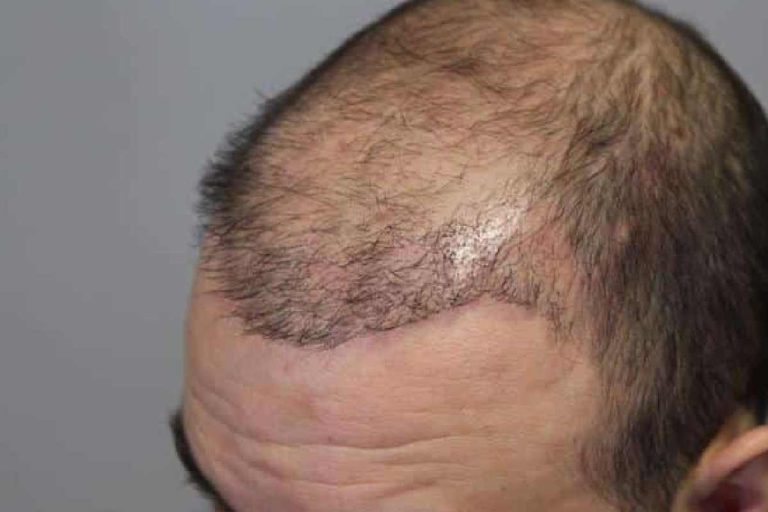Hair transplant surgery can be a transformative procedure, offering not just a fuller head of hair but also a boost in self-confidence and an improvement in overall appearance. However, the success of this procedure isn’t guaranteed. Understanding how to avoid a failed hair transplant is essential for anyone considering this option.
A hair transplant involves moving hair follicles from a dense area of the scalp (donor site) to a bald or thinning area (recipient site). The two main types of procedures are Follicular Unit Transplantation (FUT) and Follicular Unit Extraction (FUE), each with benefits and considerations.
Table of Contents
Reasons for Failed Hair Transplants
Failed hair transplants can stem from many factors, each critical to the procedure’s overall success. Understanding these reasons can empower individuals to take proactive steps to mitigate risks.
Inadequate Candidate Evaluation:
Only some are suitable candidates for a hair transplant. Factors such as insufficient donor hair density, certain medical conditions, or unrealistic expectations can produce unsatisfactory results. A thorough evaluation by a qualified surgeon is essential to determine suitability.
Poor Planning and Technique
The success of a hair transplant also depends on meticulous planning and the execution of the procedure. This includes the correct angling and placement of grafts to achieve a natural-looking hairline. Failure in these aspects can lead to an unnatural appearance or poor hair growth.
Inexperience of the Surgeon
The skill and experience of the surgeon performing the hair transplant are paramount. Surgeons with limited experience or those not specializing in hair restoration may lack the expertise required for a successful outcome.
Post-operative Care Neglect
After a transplant, the healing process and hair growth can significantly impact how well post-operative care instructions are followed. Neglecting these guidelines can lead to infection, scarring, and the failure of grafts to take root.
Choosing the Right Surgeon
Your hair transplant’s success largely depends on your surgeon’s expertise. Look for a board-certified professional with a wealth of experience, specifically in hair transplantation. Evaluate their portfolio of before-and-after photos and read through patient testimonials to gauge satisfaction levels.
Post-Operative Care for Success
Immediate and long-term aftercare is crucial for a successful hair transplant. Following your surgeon’s instructions for hair care and dealing with side effects is essential for optimal healing and growth.
Ready to embark on a journey towards a fuller, more confident you? Discover the cutting-edge hair restoration solutions that have made Dr. Vivo Hair Clinic a leader in hair transplant technology. Click here to learn more about Turkey hair transplant cost and how we can help you achieve your hair goals with our expert care and innovative techniques.
Lifestyle Factors Affecting Transplant Success
The role of lifestyle factors in the success of a hair transplant cannot be overstated. Even with the best surgical technique, certain lifestyle choices can hinder the growth and health of transplanted hair.
- Nutrition and Hair Health: A balanced diet of vitamins, minerals, and protein supports hair growth. Nutrient deficiencies can affect the strength and health of new hair.
- Stress Management: Chronic stress is known to contribute to hair loss. Managing stress through meditation, exercise, or other relaxation techniques can support the success of the transplant.
- Avoiding Harmful Habits: Smoking, excessive alcohol consumption, and drug use can impair healing and negatively affect the health of transplanted hair. These habits can restrict blood flow to the scalp, delaying healing and potentially leading to poorer outcomes.
Knowing what signs of healing and growth to look for can help you gauge the success of your transplant. Regular follow-ups with your surgeon are also crucial.
Dealing with Unsatisfactory Results
Despite best efforts, some individuals may be dissatisfied with their hair transplant results. However, options are available to address and correct unsatisfactory outcomes.
Understanding Potential Corrections
The first step is to consult with the original surgeon or seek a second opinion to understand possible corrective measures. This could include additional hair transplant sessions to add density or improve the hairline.
When to Consider a Touch-up Procedure
It’s important to have realistic expectations regarding the timeline for seeing the full results of a hair transplant, typically between 6 to 12 months. If, after this period, the results are still unsatisfactory, a touch-up procedure might be necessary.
Psychological Support and Patience
Dealing with unsatisfactory results can be emotionally challenging. Seeking support from counselors, support groups, or online forums can provide emotional relief and patience while seeking corrections.
By understanding the reasons for failed hair transplants, acknowledging the impact of lifestyle factors, and knowing how to address unsatisfactory results, individuals can better navigate their hair restoration journey with informed expectations and proactive strategies.
A successful hair transplant results from careful planning, skilled execution, and diligent aftercare. By taking informed steps and selecting the right medical team, you can significantly reduce the risk of a failed hair transplant and confidently move towards achieving your desired results.


